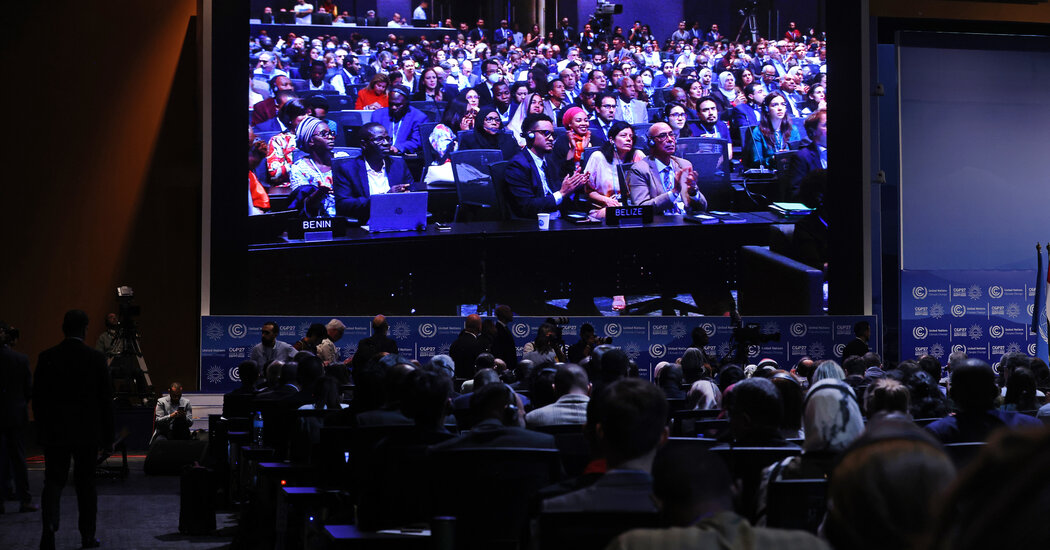Follow our live report of the COP27 Climate Summit in Egypt.
SHARM EL SHEIKH, Egypt — International climate talks, known as COP27, kicked off in Egypt on Sunday with a small, symbolic breakthrough amid a warning of geopolitical tensions and the grim certainty of science.
The World Meteorological Organization said Sunday that the past eight years are on track to be the warmest on record, citing the effects of the accumulation of greenhouse gas emissions in the atmosphere from the dawn of the industrial age. The Paris climate accords signed in 2015 aimed to address that problem and slow rising temperatures.
The average temperature on Earth is 1.1 degrees Celsius higher than 150 years ago, the agency said in a report, exacerbating heat waves and extreme weather on every continent.
In addition to that sobering data came what counts as progress on the controversial issue of who will pay for the irreversible damage climate change is wreaking havoc on the world’s most vulnerable. For the first time, the topic of “financing arrangements” for loss and damage was included on the formal agenda of the conference, allaying longstanding concerns from the United States and the European Union.
That’s a win for a bloc of poor countries and emerging economies, backed by China, who say they have lost money, land, livelihoods and lives due to climate risks disproportionately caused by the greenhouse gas emissions of rich, industrialized countries.
Those countries, led by the United States and Europe, have long said they can’t agree on a separate pot of money that could open endless claims for compensation. They softened their stance this year by agreeing to put loss and damage on the agenda.
The issue is far from resolved. There is no agreement on whether or not to set up a compensation fund, let alone allocating money itself. “Space has been created for discussion,” said Simon Stiell, head of the UN Climate Change Agency, which leads these talks.
To gauge the level of frustration, an organization of vulnerable island states appealed to ‘solidarity, not charity’.
“We are not asking for favors,” said a statement from the Alliance of Small Island States. “We will not be silent victims of the cost of pollution caused by others, for the profit of a few.”
Worsening crises are looming over these talks, prompted by the coronavirus pandemic and Russia’s war with Ukraine. Energy prices have skyrocketed, whetting the appetite to develop more fossil fuel projects. Food prices have also skyrocketed, pushing poor people deeper into famine.
The world’s two largest emitters of greenhouse gases, the United States and China, barely speak to each other, and tensions between them are running high on everything from trade to Taiwan. These tensions will complicate efforts to make progress at the conference.
But none of those problems will have the long-term impact of climate change, Mr Stiell said. “Climate change is always present and will only get worse,” he warned at a news conference.
The World Meteorological Organization report has clearly laid out the catastrophic threat of climate change. Sea levels are rising twice as fast as 30 years ago. The ocean is hotter than ever. The concentrations of carbon dioxide and methane warming the planet are at their highest levels. This is exactly what scientific projections have been warning against for decades, said the group’s secretary general, Petteri Taalas.
“The projections were correct,” said Dr. Language axis.

